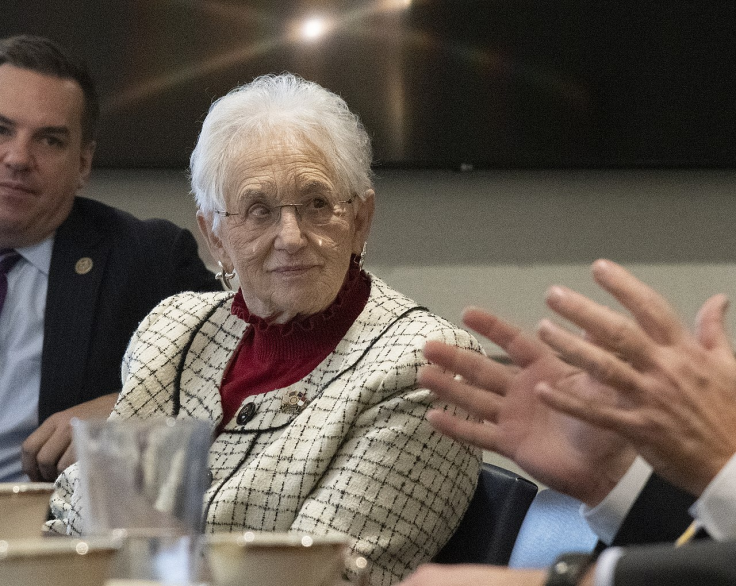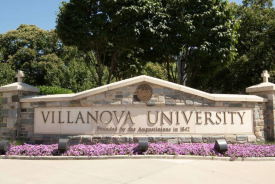House Committee Threatens Subpoena in Antisemitism Probe at Northwestern University
ByIn a recent escalation of tensions between federal oversight and university autonomy, Representative Virginia Foxx, a North Carolina Republican and chair of the House Education and Workforce Committee, has taken a firm stance against Northwestern University.
The controversy centers on alleged antisemitic incidents on campus and the university's perceived failure to adequately address them. Foxx has accused Northwestern of obstructing the committee's investigation by withholding critical documents and providing evasive testimony. This clash highlights the ongoing struggle to balance free speech and the protection of students from discrimination in academic institutions. The outcome of this dispute could have far-reaching implications for how universities nationwide handle similar issues.

Background on the Investigation
Representative Virginia Foxx, a North Carolina Republican and the chair of the House Education and Workforce Committee, has been actively pursuing an investigation into alleged antisemitic incidents at Northwestern University. The investigation began after the committee received reports of antisemitic behavior and a pro-Palestinian encampment on campus. The committee's concerns intensified following the events of October 7, which allegedly sparked a rise in antisemitic activities at the university.
To understand the scope and nature of these incidents, the committee requested a series of documents from Northwestern University. These documents were supposed to provide insight into the university's handling of antisemitic incidents and its compliance with Title VI of the Civil Rights Act of 1964, which prohibits discrimination based on shared ancestry or ethnicity, including antisemitism.
Accusations of Obstruction
In a letter sent on Friday, Representative Foxx accused Northwestern University President Michael Schill of obstructing the committee's investigation. According to Foxx, the university's response to the document request has been largely inadequate. Out of the 233 pages turned over by the university, Foxx claims that 78 percent were non-responsive to the committee's specific requests. Only 13 pages were considered responsive and contained information that wasn't already public.
Foxx's letter expressed strong disapproval of Northwestern's actions, calling the obstruction "unbecoming of a leading university." She further criticized Schill's conduct during a May 23 hearing, where he reportedly provided evasive and misleading testimony. Schill's refusal to answer hypothetical questions or straightforward yes or no inquiries was highlighted as a sign of disrespect not only towards the committee but also towards Northwestern's Jewish community.
Potential Subpoena and Broader Implications
Foxx has mandated that Northwestern University meet the document requests in full by June 17. Should the university fail to meet this deadline, Foxx has indicated that the committee is prepared to issue a subpoena to obtain the necessary documents. If this occurs, it would mark the second instance this year where the committee has had to take such drastic measures against an institution of higher education.
The situation at Northwestern University underscores the broader national conversation about antisemitism and the responsibilities of educational institutions to protect their students from discrimination. Title VI of the Civil Rights Act is a crucial tool in this regard, as it mandates that universities must not allow discrimination based on race, color, or national origin.
However, the complexities of campus politics and free speech issues often complicate the enforcement of these protections. Pro-Palestinian activism, which is prevalent on many campuses, sometimes crosses lines into antisemitism, creating a challenging environment for university administrations to navigate. This case highlights the delicate balance between protecting free speech and ensuring a safe, non-discriminatory environment for all students.
Representative Virginia Foxx's investigation into Northwestern University's handling of alleged antisemitic incidents reveals significant tensions between federal oversight and university autonomy. The accusations of obstruction and the potential for a subpoena reflect a serious escalation in the committee's efforts to hold educational institutions accountable under Title VI of the Civil Rights Act. As this situation unfolds, it will be crucial to watch how both the university and the committee navigate these challenges, and what implications this case might have for other universities across the country. Ensuring a safe and inclusive environment for all students remains a paramount concern, and this investigation serves as a reminder of the ongoing need for vigilance and accountability in higher education.
© 2026 University Herald, All rights reserved. Do not reproduce without permission.








